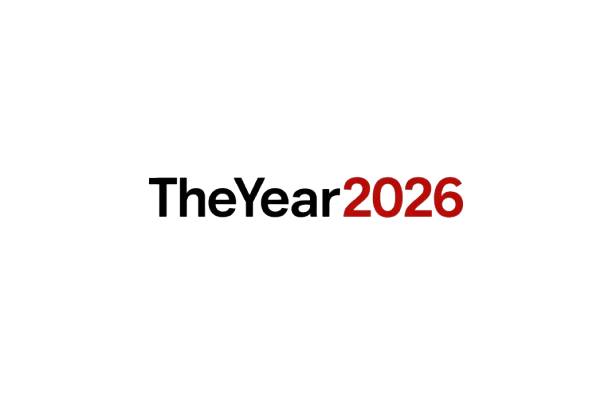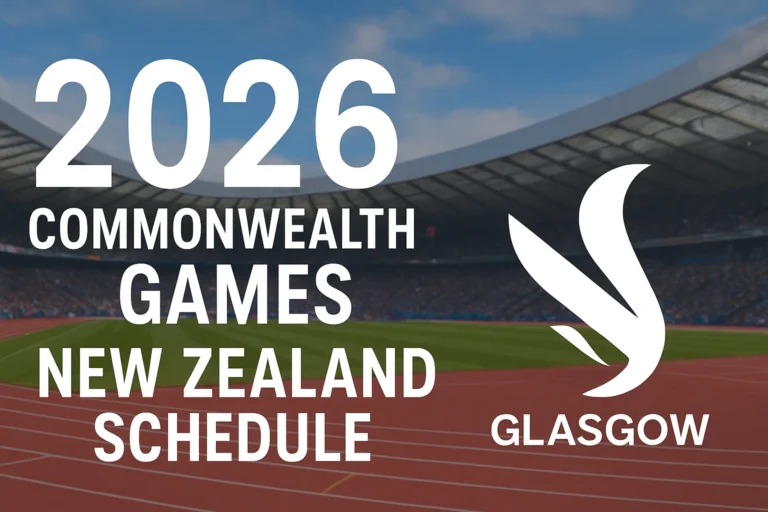Introduction
The 2026 Commonwealth Games are finally set to take place in Glasgow, Scotland, from July 23 to August 2, 2026.
For New Zealanders, this global multisport event is both a moment of national pride and an opportunity to celebrate the athleticism of our own Kiwi athletes competing among the Commonwealth’s best.
In this article, you’ll get:
- The confirmed schedule and sport lineup
- Venues and event layout
- New Zealand’s roles and expectations
- How to watch and follow from Aotearoa
- Highlights, medal chances, and impact
Overview
Host and Selection Context
Originally, Victoria, Australia was slated to host the 2026 Games, but due to rising costs and financial concerns, they withdrew.
Glasgow, Scotland stepped in as the replacement host, confirming a scaled-down edition of the Games.
The 2026 edition is designed to be “lighter and leaner,” with 10 sports across 4 venues and a more compact footprint.
Dates and Duration
- Opening Ceremony: July 23, 2026
- Competition runs through: August 2, 2026
- Daily schedule: Morning through evening sessions, across multiple sports
READ MORE: How to Buy World Cup 2026 Tickets
Sports Lineup and Venues
Confirmed Sports
The 2026 Games will feature 10 sports, including integrated Para variants here are the confirmed ones:
- Athletics / Para Athletics
- Swimming / Para Swimming
- Artistic Gymnastics
- Track Cycling / Para Track Cycling
- Netball
- Weightlifting / Para Powerlifting
- Boxing
- Judo
- Bowls / Para Bowls
- 3×3 Basketball / 3×3 Wheelchair Basketball
Some sports commonly associated with past Commonwealth Games (like cricket, hockey, rugby sevens) have been dropped in this scaled version.
Venues and Layout
The Games’ venues are concentrated within an 8-mile corridor in Glasgow to reduce travel and operational complexity.
Key venues include:
- Scotstoun Stadium; Athletics events
- Tollcross International Swimming Centre: Aquatics events
- Sir Chris Hoy Velodrome & Arena: Track cycling
- Scottish Event Campus (SEC): Multiple indoor events (boxing, judo, etc.)
Because the Games are scaled down, there will be no athletes’ village; instead, athletes will use existing accommodations (hotels, university residences).
Daily Schedule and Event Highlights
Below is a tentative overview of how competition will likely unfold (subject to final timetable from organizers):
| Day | Date | Major Events / Highlights |
| Day 1 | July 23 | Opening Ceremony + start of athletics heats |
| Day 2 | July 24 | Athletics, swimming prelims, boxing, judo |
| Day 3 | July 25 | Cycling, gymnastics, netball group rounds |
| Day 4 | July 26 | Athletics semifinals, swimming finals, weightlifting |
| Day 5 | July 27 | Track cycling finals, bowls events |
| Day 6 | July 28 | Judo finals, 3×3 basketball rounds |
| Day 7 | July 29 | Athletics finals (sprints, hurdles), boxing finals |
| Day 8 | July 30 | Swimming finals, bowls finals |
| Day 9 | July 31 | Multi-sport finals, medal ceremonies |
| Day 10 | August 1 | Final competitions + closing events build-up |
| Day 11 | August 2 | Closing Ceremony + wrap-up |
This is only illustrative; once the official schedule is released, you should lock in each sport’s session times.
New Zealand’s Participation and Expectations
Team NZ’s Role
New Zealand has historically been one of the stronger Commonwealth nations, producing top-tier athletes in track, cycling, swimming, and more. Even in a scaled Games, Kiwi athletes will vie for podium finishes.
Given the tighter program, selection will be more competitive. Focus likely on sports where NZ has strength: athletics, swimming, weightlifting, cycling.
What NZ Fans Should Watch For
- New Zealand medal hopes in track events (middle distance, relays)
- Performance in Para sports inclusive representation
- Breakthroughs from younger Kiwi athletes making their mark
How to Watch from New Zealand (Streaming & Broadcast)
Kiwis won’t need to travel to Scotland to catch the Games broadcast access will be key:
- TVNZ or Spark Sport (depending on rights) for televised coverage
- Commonwealth Sport / Glasgow 2026 official streaming via digital platforms
- International streaming rights may allow New Zealand viewers to watch via apps or partner platforms
- Community viewing events in sports clubs, universities, or public spaces in NZ
Check closer to the Games for rights announcements in New Zealand.
What’s New and What’s Missing
New for 2026
- The scaled-down model with a leaner sport list
- Integrated para events in many disciplines
- Better fan accessibility due to compact venue layout
- No athletes’ village to reduce cost and footprint
Dropped Sports
Cricket, hockey, and rugby sevens are not included in 2026’s program.
This likely disappointed many fans who enjoyed those marquee sports in earlier Games.
READ MORE: Hockey Day in Canada 2026
Potential Challenges and What to Watch
- Schedule conflicts: overlapping event times
- Broadcast rights delays: for Kiwi viewers, final streaming platform may not be known until closer to July 2026
- Athlete travel or logistic issues: especially with a more compressed format
- Public interest: scaling down could affect fan enthusiasm
Impact and Legacy
- For New Zealand: stronger performance at fewer sports may increase medal efficiency
- For Glasgow: reuse of infrastructure and controlled scale likely to produce a more sustainable Games
- For the Commonwealth movement: 2026 could be a turning point in how future Games are organized more compact, less costly
Conclusion
The 2026 Commonwealth Games in Glasgow promise to be a leaner yet high-impact edition. For New Zealand, while the Games aren’t on home soil, the representation and medal opportunities remain significant. Kiwi fans should gear up to follow the action, whether via TV or streaming, and rally behind their athletes competing across the 10 sports.
Stay tuned when the official daily schedule is released, it will replace the tentative outline above. But for now, this is your ultimate guide to what to expect.

